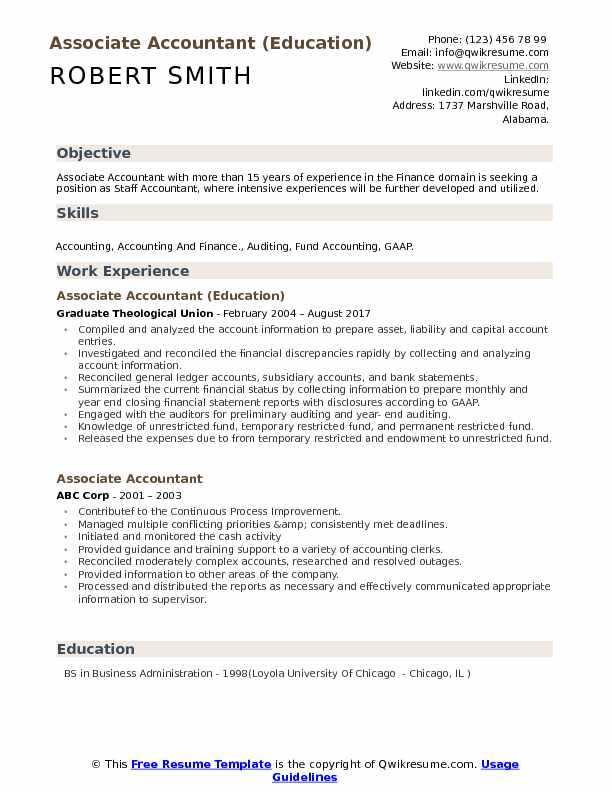
A college degree is not required to work as a full charge bookkeeper. This job also requires foreign financial reporting experience. As small companies start to go global, they must also maintain two sets of books, one for foreign regulatory requirements and one for US requirements. According to the country where the company is based, the salary for a bookkeeper full-time may differ. In some countries, this job isn't even necessary, but it is helpful to have a bachelor's degree in accounting or business.
Job description
Full-charge bookkeepers require a lot of attention to detail. It is important to organize records and have a good eye for detail. This will help you quickly spot inconsistencies and mistakes. These skills are crucial for maintaining accuracy in financial reports and ledgers and minimizing risk of audit or investigation. As such, the full charge bookkeeper salary description may include more than just the basic salary for this role.

A full-time salary description for a bookkeeper could include a $60k salary. Full-charge bookkeepers can work for large corporations. This job description does not only apply to small business owners. Candidates with a college diploma are best suited for this role. Some full-time bookkeepers opt to continue their education and obtain a certification. To become certified by the National Association of Certified Public Bookkeepers(NACPB), one year of work experience is required. Professional study must also be completed. Employers may require certain knowledge or skills to obtain the certification.
Education requirements
The education requirements for a full charge bookkeeper salary are generally very low, although there are a few exceptions. A few full-time bookkeepers hold a bachelor's in accounting or business. This position is best suited for those with higher education. Candidates with work experience might also be interested in pursuing an associate's or bachelor's degree. This is because these positions are extremely competitive and a degree in accounting may not be necessary.
In a job interview, you will be asked about problems or issues that you faced in the past. You'll be able pick and choose from many situations and easily explain them if you are a good candidate. For example, you may be asked to account for a $750 tax rebate, or the number of movie theaters in your home state. For an ideal candidate, you'll be asked to talk about some of the challenges that you've faced in the past, as these will give you an insight into their character and work habits.
Salary range
The range of full-time bookkeeper salaries varies depending on experience, location, education, certifications, and other factors. Your current industry and location can also impact the amount you are paid. This table gives an overview of the salaries available to full-time bookkeepers. Contact a recruitment agency to get a better understanding of your earning potential. The average salary in this job is $51,038 each year.

A high school diploma is the minimum education requirement to become a full-time bookkeeper. However, most employers prefer that you have at least an associate's or bachelor's degree. Other options include obtaining a Certified Bookkeeper designation from the American Institute of Professional Bookkeepers. Many employers prefer candidates who have a combination of education and experience, so it's helpful to be familiar with advanced accounting software. Bookkeeper salaries are subject to location and experience. They can also vary widely depending on the individual.
FAQ
What is an auditor?
An audit involves a review and analysis of a company's financial statements. An auditor examines the company's accounts to ensure that everything is correct.
Auditors are looking for discrepancies among what was reported and actually occurred.
They also examine whether financial statements for the company have been properly prepared.
What is bookkeeping exactly?
Bookkeeping is the act of keeping track of financial transactions, whether they are for individuals or businesses. It involves recording all business-related income as well as expenses.
Bookkeepers maintain financial records such as receipts. They also prepare tax returns and other reports.
How long does an accountant take?
To become an accountant, one needs to pass the CPA exam. Most people who want to become accountants study for about 4 years before they sit for the exam.
After passing the test, one has to work for at least 3 years as an associate before becoming a certified public accountant (CPA).
What kind of training is necessary to become a bookkeeper?
Bookkeepers must have basic math skills such as addition, subtract, multiplication and division, fractions or percentages, and simple algebra.
They must also be able to use a computer.
Many bookkeepers have a highschool diploma. Some may even hold a college degree.
How can I tell if my company has a need for an accountant?
Many companies hire accountants after reaching certain levels. A company might need an accountant when it makes $10 million annually or more in sales.
Some companies, however, hire accountants regardless their size. These include small firms, sole proprietorships, partnerships, and corporations.
It doesn't really matter how big a company is. Accounting systems are the only thing that matters.
If it does, the company will need an accountant. Otherwise, it doesn't.
What is the difference between bookkeeping and accounting?
Accounting is the study of financial transactions. Bookkeeping records these transactions.
These are two related activities, but separate.
Accounting deals primarily on numbers, while bookkeeping deals mostly with people.
For reporting purposes on an organization's financial condition, bookkeepers keep financial records.
They adjust entries in accounts receivable and accounts payable to make sure that the books balance.
Accountants review financial statements to determine compliance with generally accepted Accounting Principles (GAAP).
If they are unsure, they might recommend changes in GAAP.
Accounting professionals can use the financial transactions that bookkeepers have kept to analyze them.
Statistics
- The U.S. Bureau of Labor Statistics (BLS) projects an additional 96,000 positions for accountants and auditors between 2020 and 2030, representing job growth of 7%. (onlinemasters.ohio.edu)
- In fact, a TD Bank survey polled over 500 U.S. small business owners discovered that bookkeeping is their most hated, with the next most hated task falling a whopping 24% behind. (kpmgspark.com)
- "Durham Technical Community College reported that the most difficult part of their job was not maintaining financial records, which accounted for 50 percent of their time. (kpmgspark.com)
- Employment of accountants and auditors is projected to grow four percent through 2029, according to the BLS—a rate of growth that is about average for all occupations nationwide.1 (rasmussen.edu)
- a little over 40% of accountants have earned a bachelor's degree. (yourfreecareertest.com)
External Links
How To
How to Become an Accountant
Accounting is the science behind recording transactions and analysing financial data. It also involves the preparation of reports and statements for various purposes.
A Certified Public Accountant or CPA is someone who has passed an exam and received a license from the state board.
An Accredited financial analyst (AFA), or an individual who meets the requirements of the American Association of Individual Investors, is an individual who is accredited by Financial Analysts. A minimum five-year investment history is required in order to be an AFA according to the AAII. They must pass a series exam to verify their understanding of accounting principles.
A Chartered Professional Accountant (CPA), sometimes referred to as a chartered accountant, is a professional accountant who has been awarded a degree from a recognized university. CPAs need to meet the specific educational standards set forth by the Institute of Chartered Accountants of England & Wales.
A Certified Management Accountant or CMA is a professionally certified accountant who specializes only in management accounting. CMAs have to pass exams administered by ICAEW and keep up-to-date with continuing education requirements throughout the course of their careers.
A Certified General Accountant is a member of American Institute of Certified Public Accountants. CGAs have to pass several tests. One test is known as the Uniform Certification Examination.
International Society of Cost Estimators' (ISCES) offers the Certified Information Systems Auditor certification. CIA candidates must complete three levels of study consisting of coursework, practical training, and a final examination.
The Accredited Corporate Compliance Officer (ACCO), is a designation that has been granted by the ACCO Foundation (IOSCO). ACOs must have a baccalaureate in finance, business administration or public policy. They also need to pass two written and one oral exams.
A credential issued by the National Association of State Boards of Accountancy is called a Certified Fraud Examiner. Candidates must pass three exams, and get a minimum score 70%.
The International Federation of Accountants (IFAC) has accredited a Certified Internal Auditor (CIA). The four-part exam covers topics such as auditing (auditing), risk assessment, fraud prevention and ethics, and compliance.
American Academy of Forensic Sciences, (AAFS), gives the designation of Associate in Forensic accounting (AFE). AFEs must have graduated from an accredited college or university with a bachelor's degree in any field of study other than accounting.
What does an auditor do? Auditors are professionals who inspect financial reporting controls and audit the internal controls. Audits can either be done randomly or based on complaints about financial statements received by regulators.